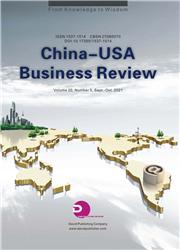Characteristics of Social Entrepreneur: An Explorative Analysis
引用次数: 0
Abstract
This study focuses on social ventures as for-profit organizations which base their survival on social legitimacy and generate a social value, by employing usually marginalized categories of individuals. Specifically, this paper studies main characteristics of starting a business in case entrepreneurs springs from a disadvantaged group of people. We use a an extremely large-scale sample, at worldwide level, including 1,563 observations. The time span covers the period 2004-2018. We investigate main characteristics of starting a business considering census (low and low-medium income) of the founder and gender. We perform one-way Anova and correlation statistics. Our results confirm that, despite policy makers’ efforts, underdog individuals still have poor possibilities of starting a business because of capital required. Difficulties are greater for women than for men. The main limits of the analysis are the small number of variables used to investigate social ventures and the explorative method, which does not allow detecting causal relationships. At a macro-level, the paper shows that policies for incentivizing social entrepreneurship and social development are still scarcely effective. This contribution extends the knowledge in a field of research which is rather new. We originally contribute by digging to light that differences in gender are a poor explanation for social entrepreneurship. Findings are largely reliable because of the massive number and time-coverage of observations. Routinely collected observations are deemed to be less biased than cross-sectional analysis. Thus, the study detects a salient path in social entrepreneurship.社会企业家的特征:探索性分析
本研究的重点是社会企业作为营利性组织,其生存基于社会合法性,并通过雇用通常被边缘化的个人类别来产生社会价值。具体来说,本文研究了弱势群体创业的主要特征。我们使用了一个非常大的样本,在世界范围内,包括1563个观察结果。时间跨度为2004-2018年。我们调查了创业的主要特征,考虑了创始人和性别的人口普查(低收入和中低收入)。我们执行单向方差分析和相关统计。我们的研究结果证实,尽管政策制定者做出了努力,但由于资金需求,处于劣势的个人创业的可能性仍然很低。女人的困难比男人大。分析的主要限制是用于调查社会企业的变量数量少,以及探索性方法,不允许发现因果关系。在宏观层面上,本文表明,激励社会企业家精神和社会发展的政策仍然收效甚微。这一贡献扩展了一个相当新的研究领域的知识。我们最初的贡献是挖掘光线,性别差异并不能很好地解释社会企业家精神。由于观测的大量数量和时间覆盖,这些发现在很大程度上是可靠的。常规收集的观察结果被认为比横断面分析的偏差更小。因此,该研究发现了社会企业家精神的显著路径。
本文章由计算机程序翻译,如有差异,请以英文原文为准。
求助全文
约1分钟内获得全文
求助全文

 求助内容:
求助内容: 应助结果提醒方式:
应助结果提醒方式:


